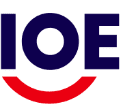2009 Engaging Business Forum Conference
2009 ENGAGING BUSINESS: ADDRESSING CHILD LABOR
Sponsored by the U.S. Council for International Business, the U.S. Chamber of Commerce, and the International Organization of Employers in Cooperation with the International Labor Organization
Hosted by The Coca-Cola Company
One Coca-Cola Plaza Atlanta, Georgia
February 25, 2009
Overview
Despite recent progress, today 218 million children can be found working underground in mines, on unsafe building sites and manufacturing centers, handling toxic substances and sharp tools on farms. While much of child labor is part of subsistence level economic activity in the informal economy, a considerable portion occurs at the bottom end of global supply chains. Companies that invest in and source from developing countries are at risk of being implicated in the use of child labor.
Child labor in global supply chains is on the agenda of activists, the media and public and private investors as never before, and the consequences for businesses of being associated with the use of child labor can include reputational damage and shareholder disappointment or even divestment. In affected communities, when child labor is detected too often there is no remediation, and a problem that stymies development and prevents children from realizing their basic rights continues unchecked.
To uphold universal values and avoid complicity in child labor problems, companies must take into consideration the prevalence of child labor in the countries and sectors where they operate. They must actively manage the risk that child labor will occur somewhere along their supply chains. However, child labor is complex and dynamic, arising or diminishing in response to changes in any of a number of conditions, many of which are beyond companies’ direct control. Moreover, in most countries it is illegal and hidden from plain view. Yet just one incident of child labor coming to light can cause companies considerable harm.
In meeting this difficult challenge, what has worked for businesses? How can businesses strengthen efforts to identify, prevent and remediate child labor? What partners and tools can be of help? To help answer these questions, this one-day meeting brought together child labor experts from the International Labour Organization, business leaders in the fight against child labor, and other key actors who will share concrete experience dealing with child labor from the local to the global levels. The conference provided impetus to a better coordinated and more effective response by business to the problem of child labor.
25th February
Time
Agenda
8:30 - 8:45 AM
1
Welcome and Opening Comments from The Coca-Cola Company&Meeting Overview and Objectives
Welcome from The Coca-Cola Company
- Muhtar Kent, President and Chief Executive Officer, The Coca-Cola Company
Meeting Overview and Objectives
- Brent Wilton, Deputy Secretary General, International Organization of Employers (IOE)
- Ed Potter, Director, Global Workplace Rights, The Coca-Cola Company
8:45 - 10:45 AM
2
Key Note Speakers—Child Labor in the Global Economy: the Impact of Child Labor on Business
Moderator
- Ronnie Goldberg, Executive Vice President, U.S. Council for International Business (USCIB)
Speaker
- Michele Jankanish, Director, International Programme on the Elimination of Child Labor of the International Labor Organization (IPEC)
- Marcia Eugenio, Director, Office of Child Labor, Forced Labor, and Human Trafficking, U.S. Department of Labor
- Anna Walker, Senior Manager, Worldwide Government Affairs and Public Policy, Levi Strauss & Co.
- Bennett Freeman, Senior Vice President for Social Research and Policy, The Calvert Group
10:45 - 11:00 AM
3
BREAK
11:00 AM - 12:30 PM
4
Tackling Child Labor: Business Approaches and Lessons Learned – Panel Discussion
Moderator
- Cindy Sawyer, Work Environment and Workplace Rights Director, The Coca-Cola Company
Speaker
- Benjamin Smith, Chief Technical Advisor, International Programme on the Elimination of Child Labor, International Labor Organization
- Bill Guyton, President, World Cocoa Foundation
- Paulina Dobud, Manager, Corporate Responsibility, Telefónica – Movistar Chile
12:30 PM - 1:30 PM
5
LUNCH
1:30 - 2:15 PM
6
Available Resources to Address Child Labor - Panel Discussion
Moderator
- Brent Wilton
Speaker
- IOE, ACT/EMP “Eliminating Child Labor: Guides for Employers”, Barbara Leon, Advisor, IOE
- IPEC, Benjamin Smith, Chief Technical Advisor, International Program on the Elimination of Child Labor, International Labor Organization
- U.S. DOL, Marcia Eugenio, Director, Office of Child Labor, Forced Labor, and Human Trafficking, U.S. Department of Labor
- CARE, John Trew, Senior Technical Advisor, Child Labor and Education
2:15 - 3:00 PM
7
Facilitated Table Discussions Table Discussions: Focus on key questions regarding Child Labor
Tools / Resources
- What tools and resources are most helpful to business in addressing child labor and what additional tools are needed?
Barriers / Successful Strategies
- What barriers and challenges have you encountered or do you anticipate?
- Which business strategies have been effective or could be effective in addressing Child Labor and overcoming the barriers?
- How have you dealt with the media, what lessons have you learned?
Employer Organizations
- What role should employer/business organizations play to support the efforts of business in combating Child Labor at national/international levels?
Collect and Share Experiences
- How should we (Employers, Employer Organizations, Governments and NGOs) collect and share experiences, information and best practices?
- How should be continued building relationships on this topic?
3:00 - 3:15 PM
8
BREAK
4:15 - 4:45 PM
9
Engaging business at national and international levels on Child Labor - - Where do we go from here?
- IOE, Brent Wilton
- USCIB, Ronnie Goldberg
- US Chamber, Mike Eastman
4:45 - 5:00 PM
10



